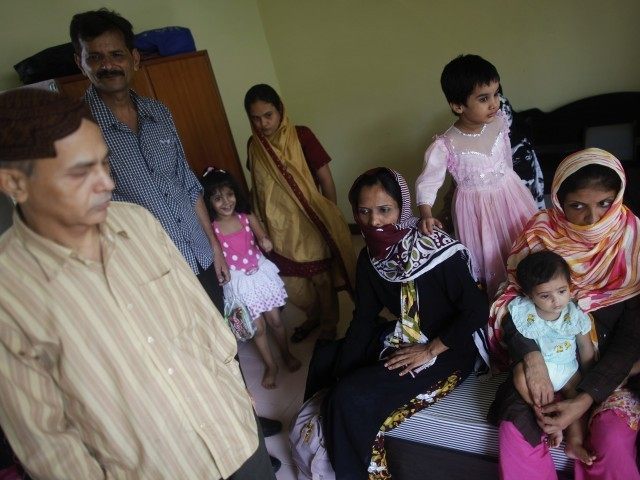Another Pakistani Christian has died in Thailand due to the deplorable conditions inside the country’s immigration center. The latest raid led to many arrests on December 20.
Pervaiz Ghouri Masih, 53, died from a tumor and a heart condition as he suffered inside the cells. The British Pakistani Christians Association (BPCA) reported officials did not provide Masih with a table, chair, or bed “despite his sallow appearance and intimated poor health.”
On December 30, Samina Faisal passed away after authorities denied her the proper medication for her heart condition, high blood pressure, and shrinking kidney.
“Pakistani Christian asylum seekers seized in such raids are taken either to the Immigrant Detention Centre or the Central Criminal Jail, and conditions in both are horrific with massive overcrowding, pitifully poor nutrition and the resultant disease epidemics,” explained BPCA Chairman Wilson Chowdhry. “In these latest raids at least 80 percent of the detainees were women and girls, along with babies and other children.”
Thailand has been cracking down on the Pakistani Christians “who’ve overstayed their visas.”
BPCA is one organization that is attempting to raise funds to release the Christians. The Thailand government demands £1,000 ($1,442.50) for each prisoner.
But Pakistani Christians face hardship as soon as they step on the Thailand border. The people have to pay a bribe or fine to border guards in order to pass.
“We refused twice and they would not let us pass but on the third time we finally paid,” said refugee Raymond John, who paid $1,100.
Christians in Pakistan flee to Thailand to escape persecution. But “Thailand is not a signatory to the 1951 Refugee Convention or its 1967 Protocol, and does not have a formal national asylum framework” so the country treats the Christians as illegal immigrants. Even if the United Nations High Commissioner for Refugees (UNCHR) declares the Christians as “genuine refugees,” the government often “will not grant asylum status” to them.
The UNCHR defines a refugee as:
A person who owing to a well-founded fear of being persecuted for reasons of race, religion, nationality, membership of a particular social group or political opinion, is outside the country of his nationality and is unable or, owing to such fear, is unwilling to avail himself of the protection of that country; or who, not having a nationality and being outside the country of his former habitual residence as a result of such events, is unable or, owing to such fear, is unwilling to return to it.
However, human rights organizations are criticizing the UNCHR because the organization has not declared Pakistani Christians as genuine refugees.
“According to a mandate, in 90 days they have to determine the status of these people as refugees, but in reality it can take four to five years,” stated Farrukh Saif, head of the Farrukh Saif Foundation. “If a minor, a child, cannot go to school for four to five years, what is his future? A whole generation of Pakistani Christians in Bangkok is being destroyed.”
Christian Freedom International (CFI) said that if UNCHR grants a person official refugee status then they are given “protective status from arrest and deportation until their request for asylum is adjudicated.”
UNCHR insists they are doing everything they can to speed up the process, but the refugees claim otherwise:
Refugees would agree that the process has been anything but speedy. Sunny Gil arrived in Thailand in August 2013 and was given an appointment with the UNHCR for an interview in May 2015 to be assigned refugee status. When the time came for the interview, however, it was postponed for a year.
“It is silly – the excuses that they give for postponing the interviews. It is such a big organization and they should be able to help us,” he said.
UNCHR is supposed to provide daily aid to the refugees. But since Thailand considers the refugees as illegal immigrants the people cannot work.
“The poor can’t and don’t escape but the middle and upper classes flee to Thailand,” said Chowdhry. “[Back in Pakistan] they are doctors, lawyers, professors, politicians.”

COMMENTS
Please let us know if you're having issues with commenting.